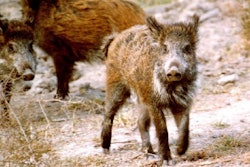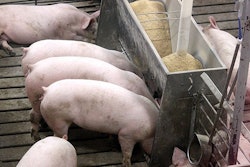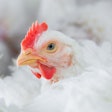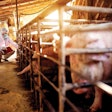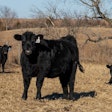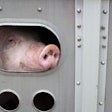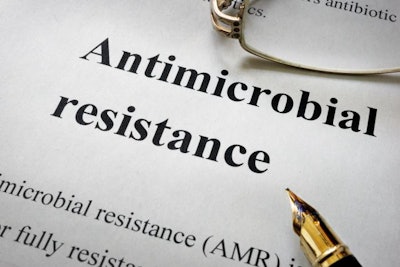
Livestock health group focuses on antimicrobial resistance, among other topics
The Republic of Ireland’s collaborative organization aiming to improve the health of its farm livestock celebrated its 10th anniversary at a conference reflecting on its past achievements, and looking forward to the future.
Among the topics covered by speakers at the recent Animal Health Ireland (AHI) conference in Dublin were antimicrobial resistance (AMR), the changing role of the veterinarian, and the link between farmer and animal health.
AMR is a “race against time,” according to European Union (EU) Commissioner on Health and Food Safety, Dr. Vytenis Andriukatis. He said that new regulations on veterinary products and medicated feeds will contribute to the control of AMR in Europe, reported the Independent. In the face of the global challenge of AMR, these rules are due to come into force in January 2022.
Formation of the AHI has led to improvements in animal management in the Irish Republic, said Professor Michael Doherty. As Dean of Veterinary Medicine at University College Dublin (UCD), he commented that AHI has improved collaboration between farmers and veterinarians. This, he said, has helped to lower the costs of disease.
Healthier animals contribute to the mental well-being of farmers, AHI chairman Donal Mangan told conference attendees at the Royal College of Physicians in Dublin.
Minister for Agriculture, Food and the Marine Michael Creed praised AHI for its decade of progress in addressing production diseases in Ireland, reported Agriland.
Over its period, the organization has helped boost the income of Irish farmers, lower carbon emissions, and reduce the use of antibiotics, according to its CEO, Dr. David Graham.
Looking ahead, AHI has begun engagement with the country’s pig and poultry industries, he said.
AHI and its role in addressing Irish animal health issues
As a partner with private sector organizations, agrifood businesses and the Irish government, AHI is a nonprofit entity. It receives no guaranteed funding from the State.
Operating through working groups, AHI provides information to livestock producers and processors, and policy advice on economically important animal diseases. These groups are addressing bovine viral diarrhea (BVD), mastitis, Johne’s disease, infectious bovine rhinotracheitis (IBR), young calf health, biosecurity and parasite control.
How EU will tighten veterinary medicine use in 2022
At the AHI event, the EU Commissioner for Health and Food Safety highlighted the measures that are due to be introduced in just over two years to tackle AMR in Europe. Building on the existing ban on antibiotic growth promoters (AGPs), the forthcoming regulations are likely to affect future animal health management in the region.
This year, details were announced of new measures to combat AMR in the EU.
Among the key points are that all antimicrobials — antibiotics, antifungals, antivirals and antiprotozoals — will be subject to prescription in all animal species. Use of these product groups will be prohibited for growth promotion, extending the ban on antibiotic growth promoters (AGPs). Also to be banned will be the preventative use of antimicrobials via medicated feed, and of antibiotics to groups of animals.


